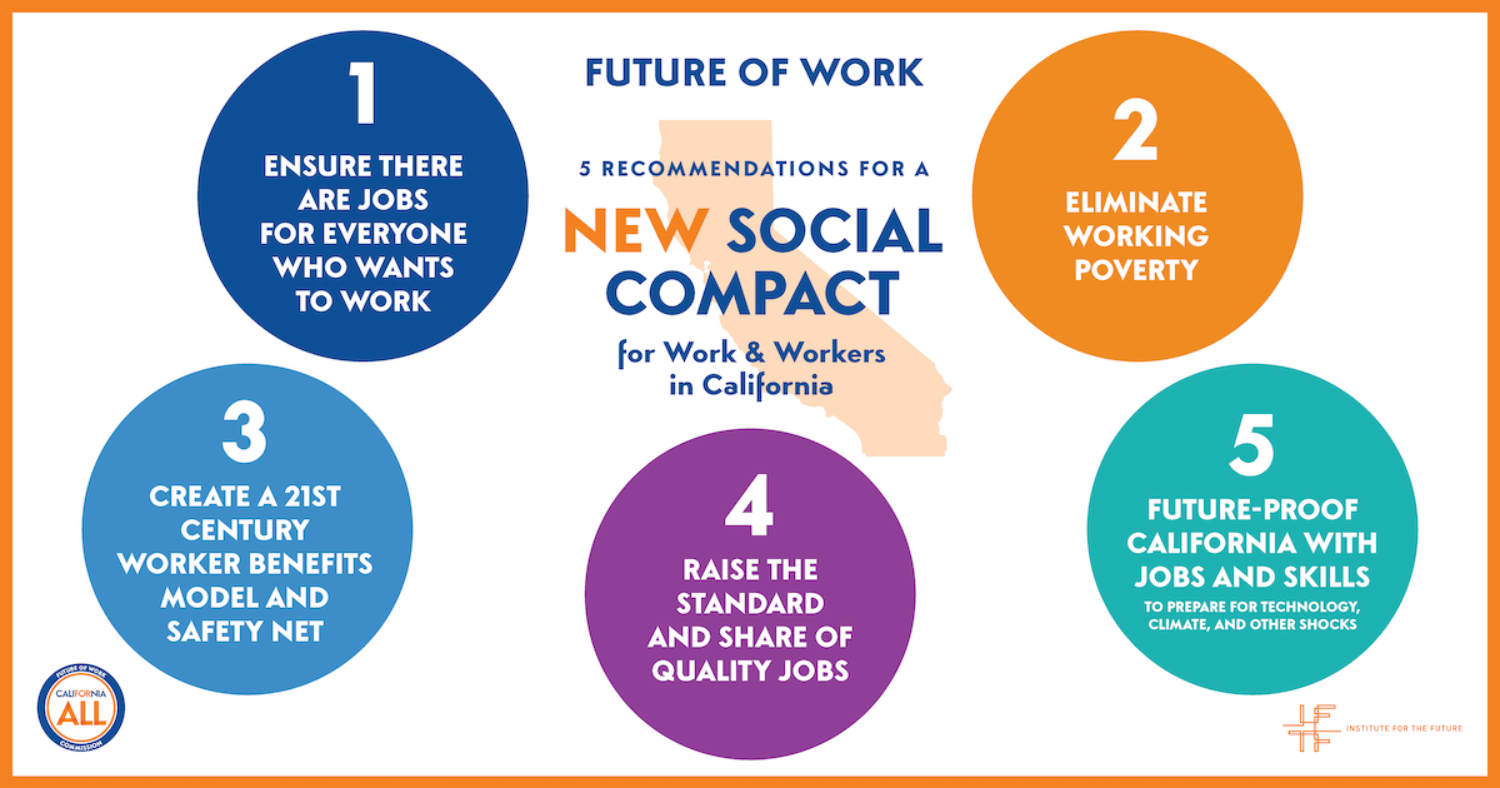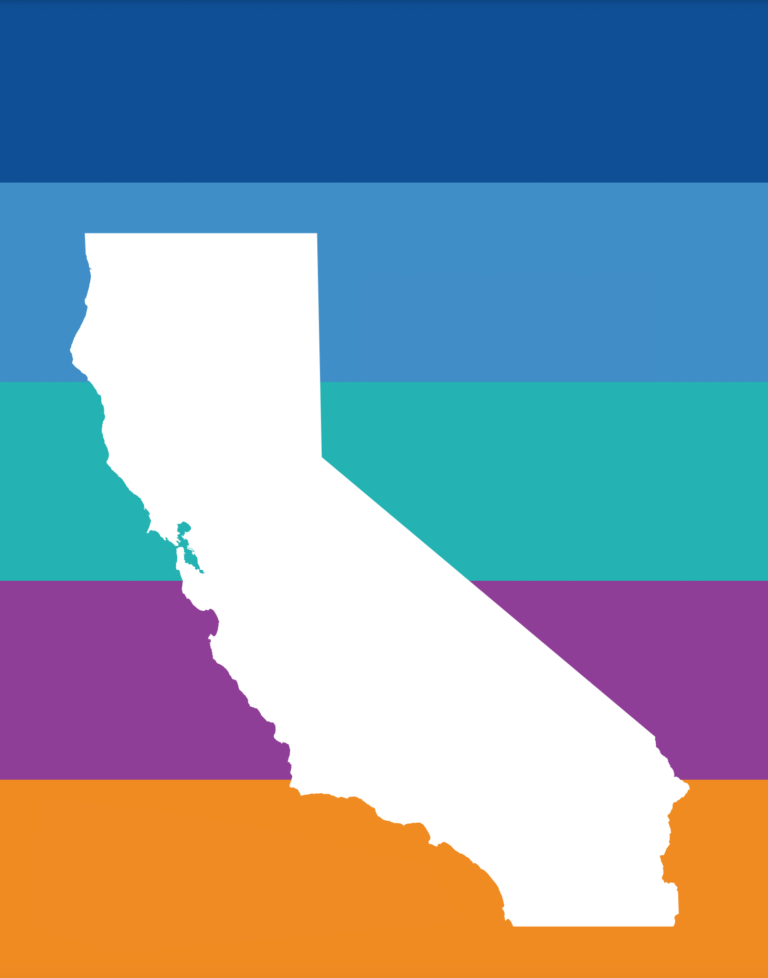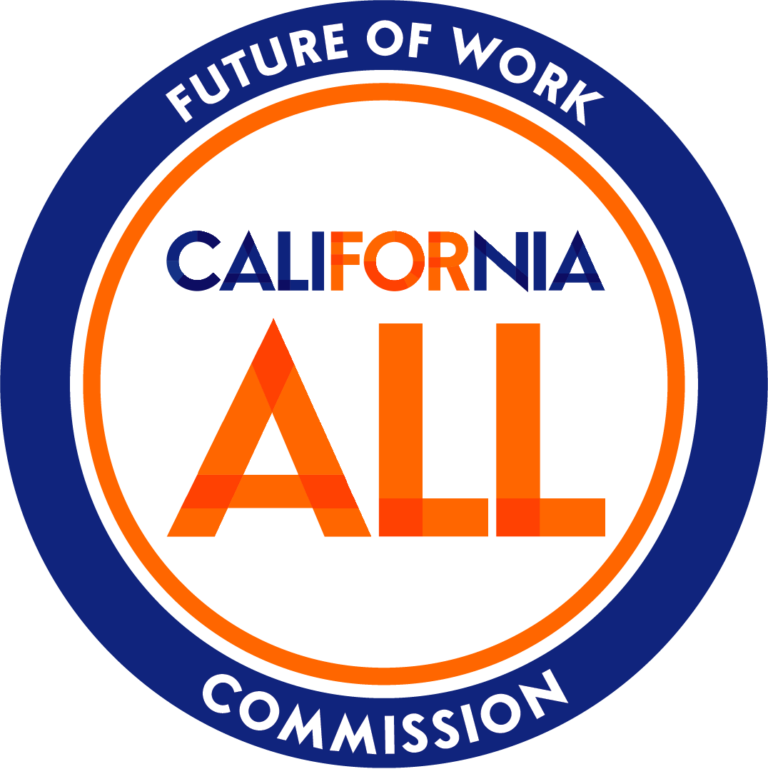California, as the fifth-largest economy in the world, has been and continues to be at the center of many of the world’s innovations in science, technology, and business. While California boasts a strong and vibrant economy by most measures of growth, too many Californians have not fully participated in or enjoyed the benefits of the state’s broader economic success, especially workers and workers of color who are disproportionately represented in low-wage industries. To address these issues, in 2019 Governor Gavin Newsom established the California Future of Work Commission, which worked with IFTF to conduct research and provide recommendations to “future-proof” California’s workforce against climate change, rising inequality, rapid technological shifts, and other growing threats.
The Commission identified critical challenges facing work and workers that, if unaddressed, could persist or worsen—challenges such as inequity, economic mobility, and low-quality work; work-adjacent issues and broader quality of life; and those further exacerbated and brought to light by the COVID-19 crisis. Report findings focus on changes in the nature of work and their implications for wealth and racial inequality—culminating in recommendations for a new social compact for work and workers in California.
The Commission’s vision for the Social Compact is based on a common understanding of shared values between employers, workers and their unions/organizations, education and training institutions, entrepreneurs, investors, corporations, technology developers and platforms, nonprofit organizations, government at all levels, the state, and others. The vision also relies on a commitment from each stakeholder to undertake actions, individually and collectively, that uphold these values and advance bold, measurable moonshot goals around five priorities by 2030 that translate this new Social Compact for Work and Workers into reality. The five priorities are depicted in the graphic below.
The hope of the Commission is that this work also inspires other states and the federal government with innovations that shape a future with greater equity. The state has never simply adapted to the future— California has always shaped the future. With dedication to this new social compact, the state can ensure a better future of work in California for all.






